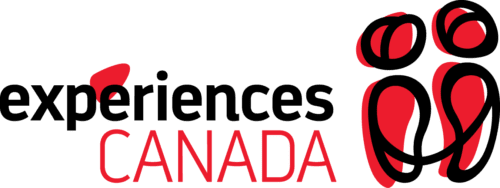
National Youth Forum 2024 – Reconciliation
From July 3-7, 60 Indigenous and non-Indigenous youth (50 participants / 10 leaders) gathered in Ottawa from each province and territory to engage in meaningful discussions and activities towards Reconciliation. This Forum provided a safe and inclusive platform for young Canadians to share their perspectives and ideas on this very important subject. Youth engaged in enriching in-person learning activities throughout the region, including visits to Mādahòki Farm, Zibi, and the Adaawe Indigenous Business Hub alongside workshops, discussions, and cultural experiences. 10 podcasts were also produced by youth in their own voices to share their first-hand experiences and lessons learned on their Reconciliation journey. Thank you to all the incredible youth participants and leaders for their invaluable contributions to this Forum!
National Youth Forum 2024 Webinars
Economic Reconciliation
This webinar will introduce the concept of economic reconciliation in a way that is appropriate for an audience of youth between the ages of 12 and 18. Subsequent webinars addressing sub-themes of entrepreneurship, environmental stewardship and the impacts of residential schools will also be covered through the lens of economic reconciliation, as will the in-person events in Ottawa for youth participants in early July, 2024. In this session, our goal is to lay the foundations of understanding why economic self-determination of Indigenous Peoples is integral to reconciliation, and how it is beneficial for both Indigenous peoples and settlers. Closing the socio-economic gap between Indigenous and non-Indigenous Canadians would yield a $27.7B contribution to the GDP in Canada according to the 2019 Indigenous Economic Progress Report. The National Indigenous Economic Strategy is designed to drive positive change, address long-standing inequities, and achieve inclusive growth for and with Indigenous communities.
Entrepreneurship
This webinar will build on the introduction of the concept of economic reconciliation covered in the first webinar. The goal is look at Indigenous entrepreneurship in the context of broader economic reconciliation and the growth of Indigenous owned start-ups and businesses in non-traditional sectors like fashion, IT, construction, marketing, transportation and many others. The growth and prosperity of Indigenous-owned business will benefit not only Indigenous communities but all of Canada as well, and as such is a key component of economic reconciliation. According to Carole Anne Hilton (founder of the Indigenomics Institute), entrepreneurs play a major role in the Indigenous economy by providing growth opportunities but also by creating a new cultural narrative.
Environmental Reconciliation
This webinar will build on the first two webinars in this series, which have introduced the broader concept of economic reconciliation, and the role that Indigenous entrepreneurship plays in economic reconciliation. The goal of this webinar is to look at the environment through the lens of economic reconciliation, and how environmental stewardship is a key component of successful economic growth and prosperity. Many corporations and companies in Canada have significant operations that have an impact on our environment. We often hear in the news of stories where economic activity and the development of new projects (particularly natural resource-based initiatives) are in conflict with Indigenous communities. True partnerships between corporations and Indigenous communities are bound to be beneficial to the country as a whole, making industries stronger via responsible environmental stewardship and the growth of local economies.
Residential School System
This webinar is the fourth in the series on the theme of economic reconciliation and will build on the previous webinars covering the concept of economic reconciliation, the role of entrepreneurship and how to address environmental stewardship in the context of economic growth. This fourth webinar will look at the lasting impacts of residential schools and the role education will play in economic reconciliation, in a way that is age appropriate for the participants who are between the ages of 12 and 18. Given the sensitive subject matter related to residential schools, it is important that the material be approached in a way that is appropriate to the age and maturity of the participants.
Hear from National Youth Forum Participant, Ariana Johnson-Potson
“My favourite thing is probably just meeting everybody, getting to talk to different people and because they come from all over Canada, it’s cool to see people from different provinces and even the territories come here and we’re all in a group together and it’s just very different and a unique experience.”



Senator Kim Pate's Message to Our National Youth Forum 2024 - Reconciliation Youth Leaders & Participants
“I want to thank all of you young leaders. You are the folks that inspire all of us and you’re doing incredible work and leadership to take us forward in a better way, not just towards reconciliation, but towards a better future for all Canadians.”
“I wish I was there in-person to hear all the amazing ideas, the challenges that you have for us, and I do hope you’ll keep in touch and will let us know what are some of the things you’d like to see us doing as we move forward.”





